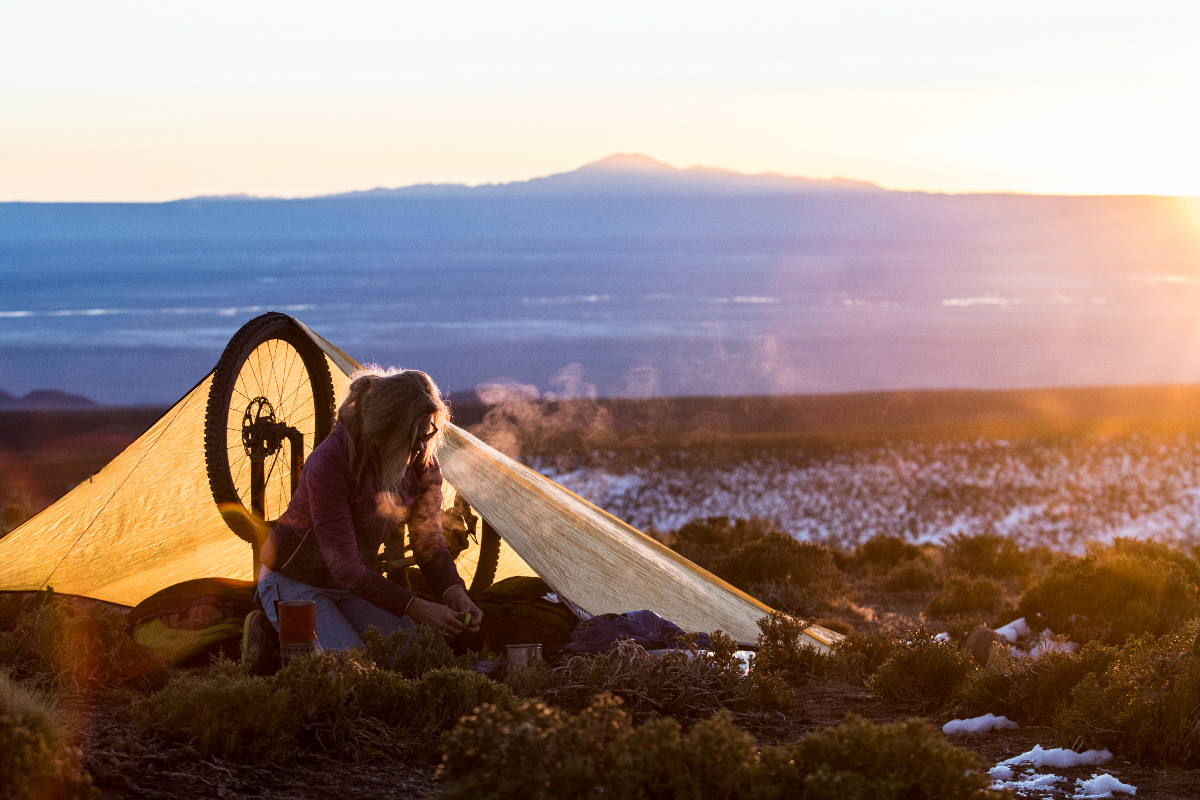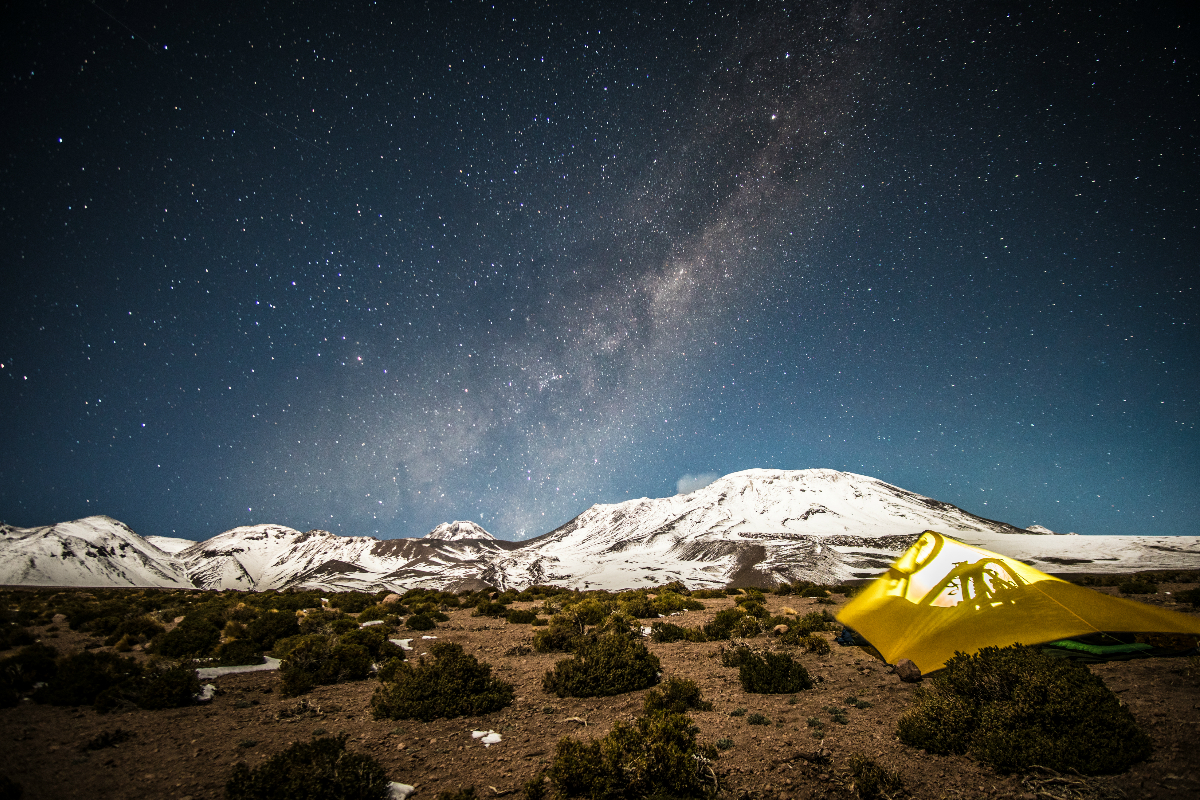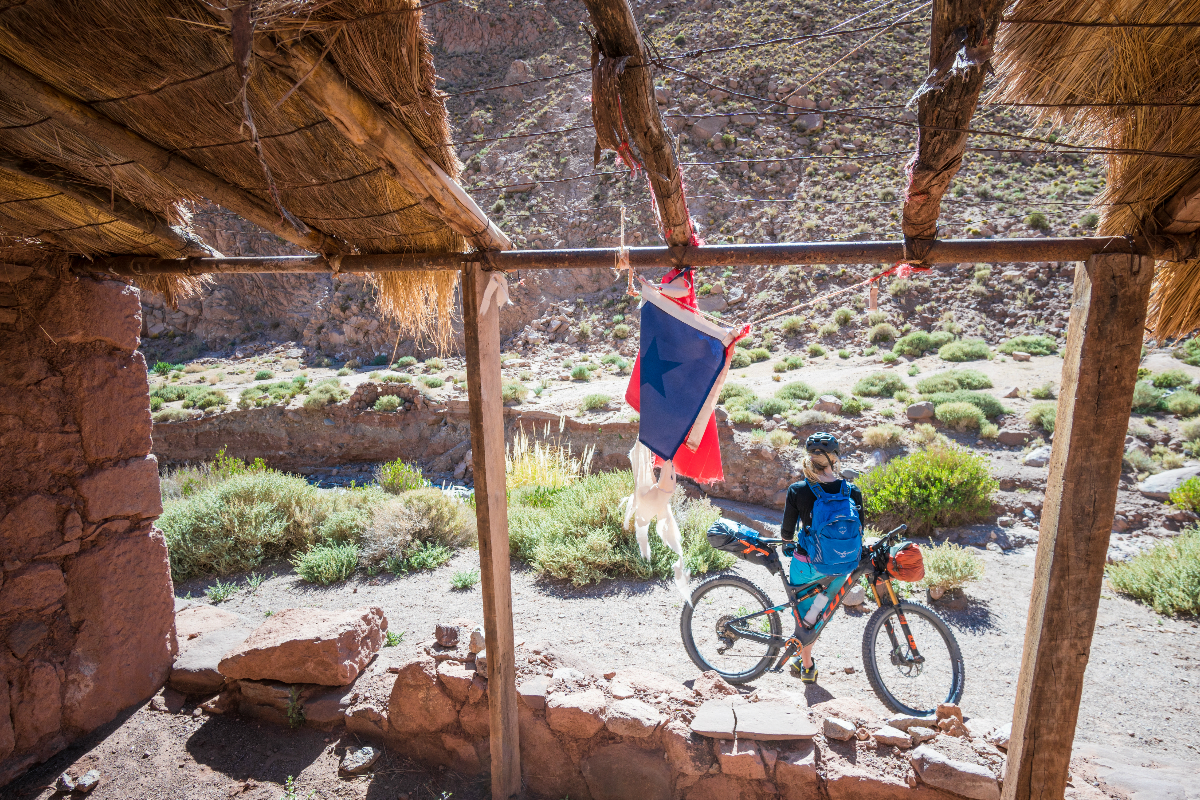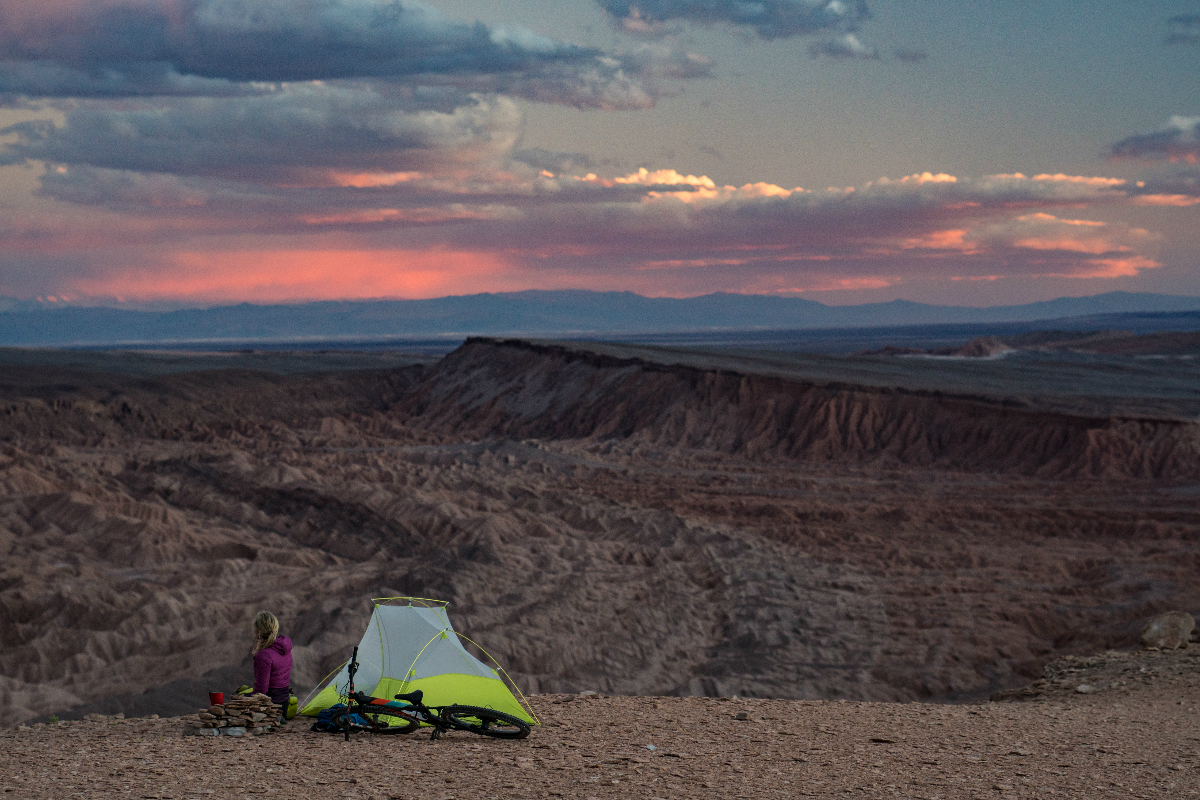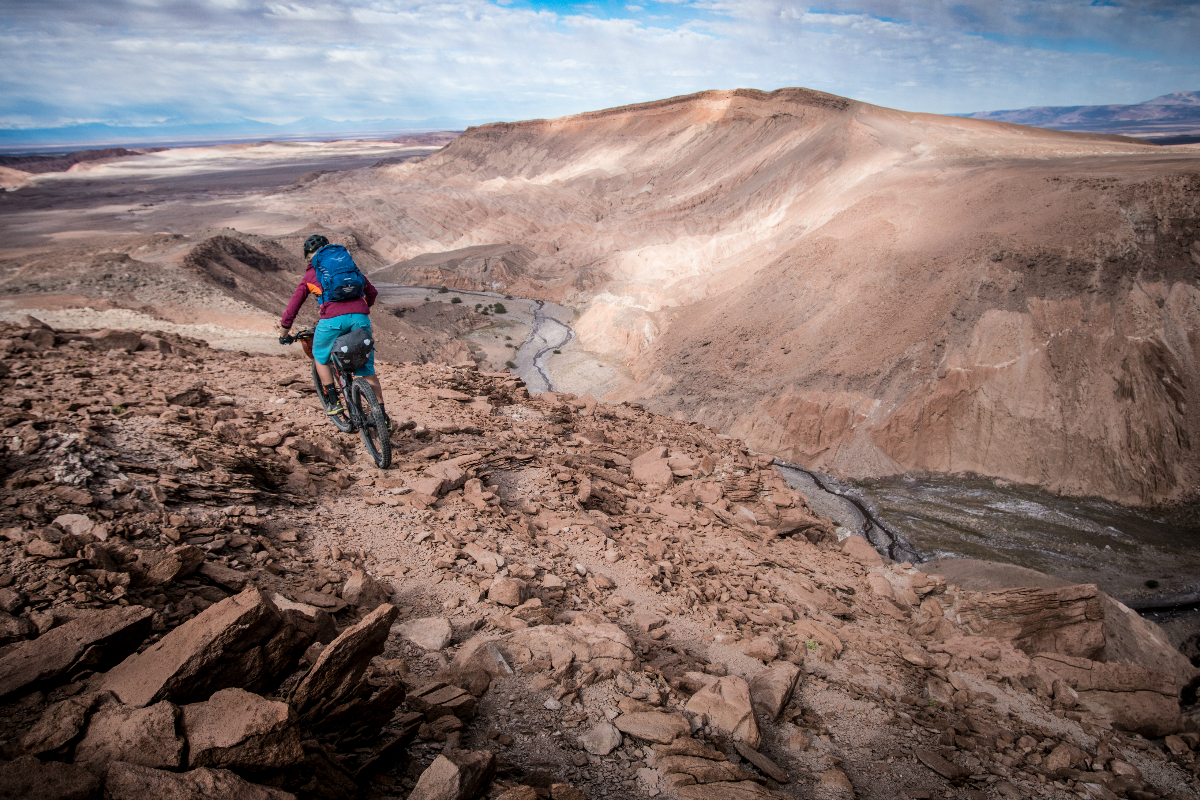Bikepacking of its own accord is a demanding sport that requires a high level of physical fitness, a knowledge of terrain and trails, and essential backpacking skills. Bikepacking through unmapped territory exists within a whole different realm of difficulty, but also serves for unprecedented adventure and excitement. In Osprey’s new film, Beyond Trails: Atacama, ambassador Lorraine Blancher travels with Robin Munshaw on a multi-day bikepacking expedition through unmapped trails and canyons in the Atacama Desert in northern Chile, pushing the limits of human-powered exploration.
The Atacama Desert is known as the driest non-polar region on earth. The desert is comprised of stony terrain, salt lakes, sand, and felsic lava and is fraught with backcountry challenges, including limited water sources, extreme temperature variations, and occasional snowstorms that strand travelers and cause road closures. The film begins with a voice-over explaining that most of this world’s paths are well-known and well-traveled, but that there are still some places in the world where maps have less detail.
Blancher and her team traveled from British Columbia with the intent to traverse the Andes, riding from the eastern slopes in Argentina to the western plains of Chile, finishing in the Atacama Desert. The plan was to ride historical trade routes and unmapped game trails through the high mountain passes. The team’s first set of challenges arrived when a few meters of snow fell and authorities closed the border to Argentina. This snowstorm was predicted to be complemented by a second storm, but the team held out hope they could sneak in between weather systems. Once they made it through, they met up with a wildfire patrol unit in Argentina who were thrilled to share remote access routes but warned of more bad weather ahead.
Blancher finally set off on her bike into the desert. Her journey brought breathtaking mountain views, stunning red-splashed sunrises and sunsets, and a deeper appreciation for the wild, untouched environment of the Atacama. She encountered remnants of the area’s industrious past and followed paths where no bike had ever gone before.
“Every new trail you travel on or off the beaten path brings uncertainty,” Blancher said in the film. “Riding bikes in a place like this forces you to pay attention to the terrain, listen closely to suggestions on how to move through it. Instead of success and failure, you became to think in terms of adaptation and forward motion.”
The film is presented by Osprey and premieres at the Vancouver International Mountain Film Festival this weekend. You can view the full film here.
